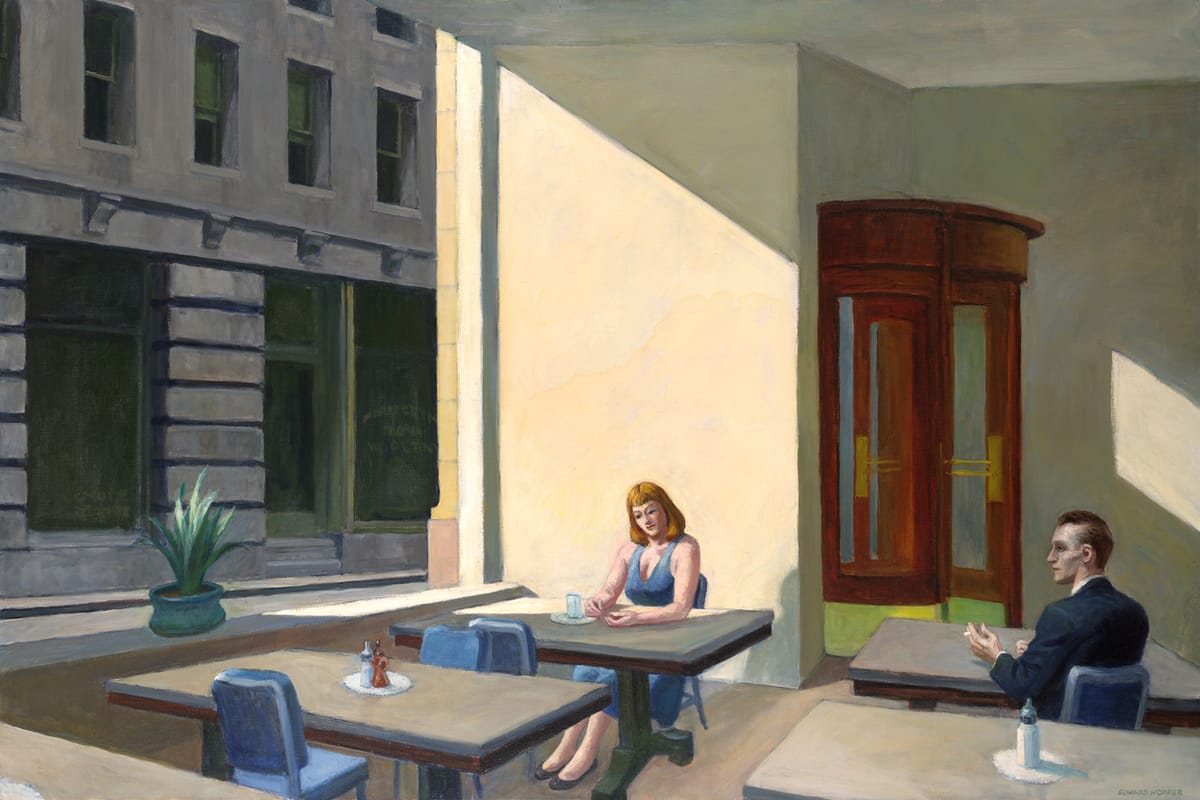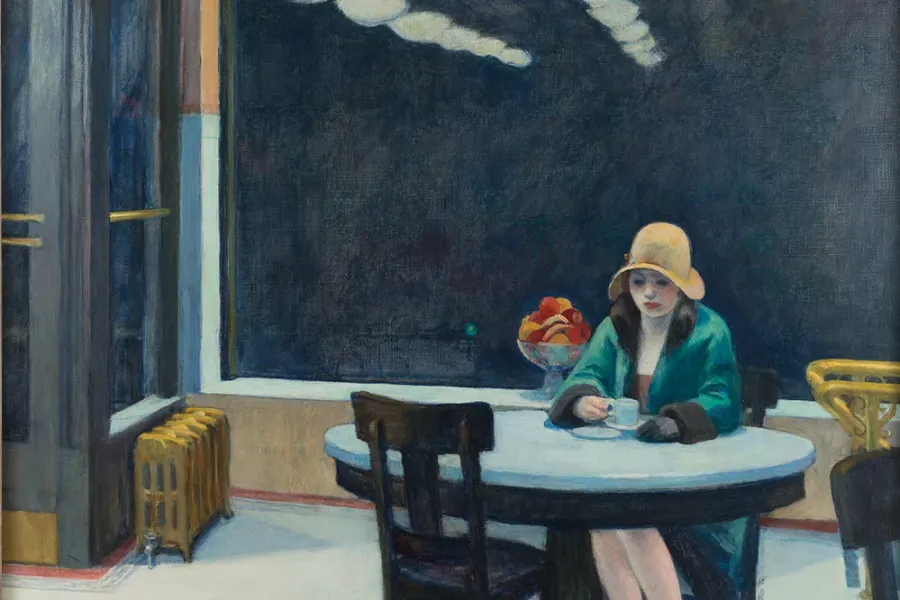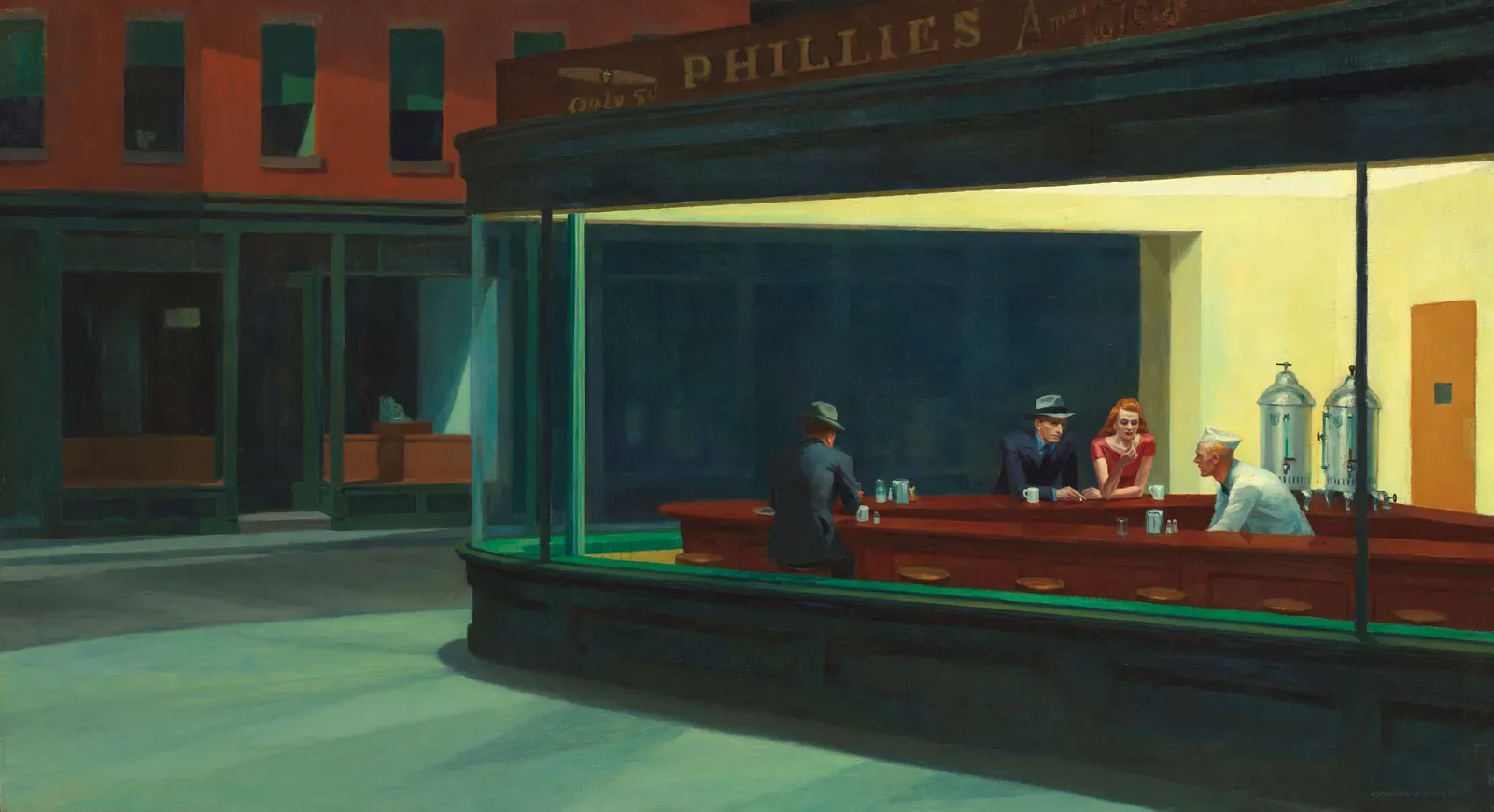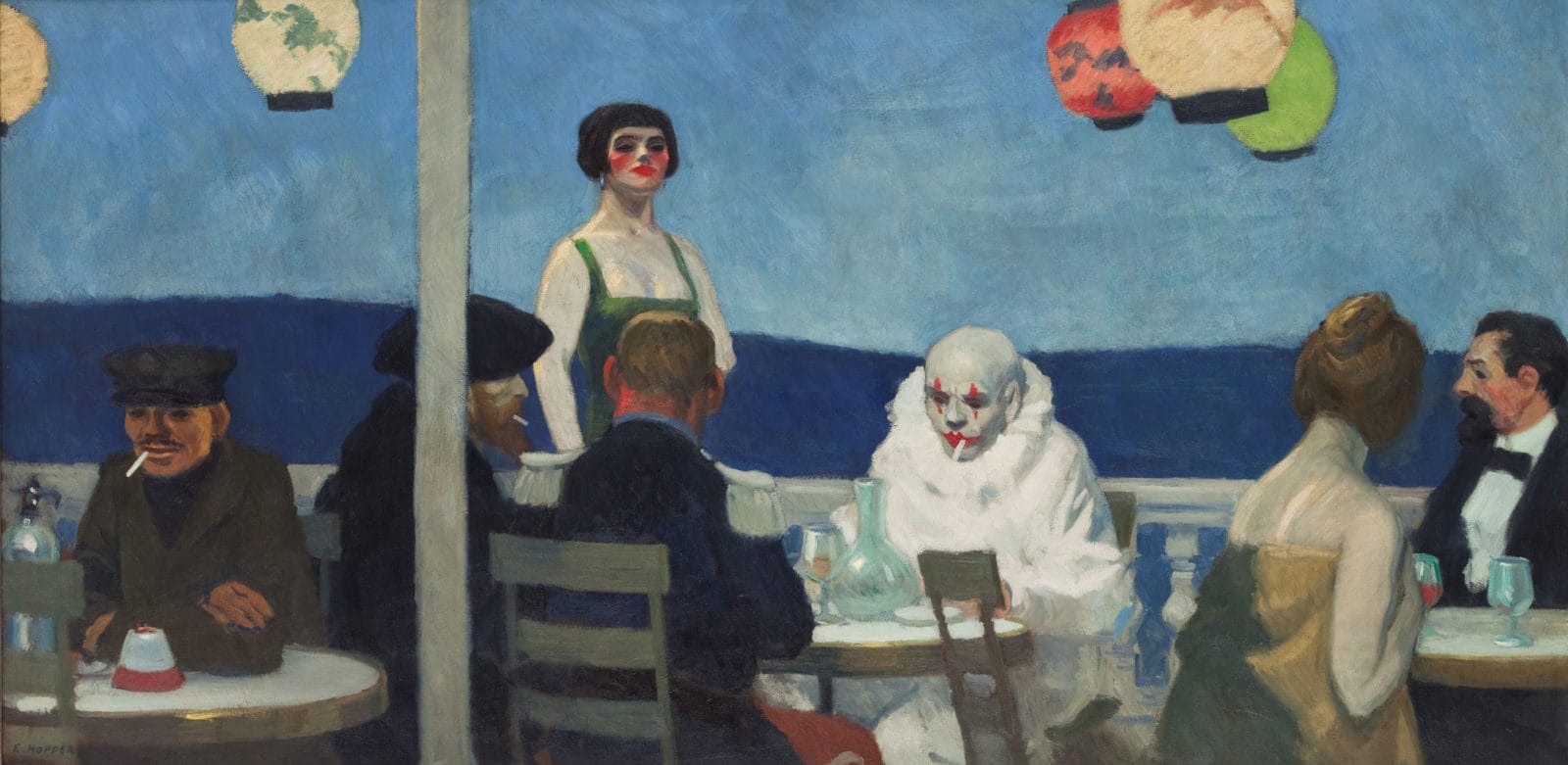From Edward Hopper to Social Networks: Why we are alone
Have you ever felt profoundly alone? Have you ever found yourself in a crowded room, but still felt empty? This is the feeling that Edward Hopper has always tried to express through his works.

Hopper created a world of alienation and boredom, distilling a truth about the modern urban experience: we can live in a vibrant, bustling city, surrounded by entertainment and community, and yet feel terribly alone.
Today I want to make a comparison between modern society, which often isolates us, punishes us by making us feel alone, and the works of Edward Hopper, which, even a century ago, touchingly represented the loneliness that remains surprisingly relevant today.
Why do we feel alone?
Loneliness is a complex and deeply personal experience, which varies greatly from person to person. There may be no single answer to what loneliness truly means, as it can be interpreted in countless ways. Yet, Edward Hopper's works manage to capture and convey the essence of loneliness without the need for words or explanations. It is difficult to avoid the conclusion that this silent, reserved and introspective man was presenting us with his own sense of alienation and isolation through his paintings; his own inner sadness.
So I can't answer what loneliness itself is, but I can, in some way, tell you why loneliness sometimes hurts us so much.

Why does being alone make us sad?
From a scientific perspective, humans are social animals, a fact emphasized time and time again. This means we have an innate need for connection and belonging; a lack of meaningful interactions can lead to feelings of isolation and sadness. This is an undeniable truth supported by science.
Sapiens: A Brief History of Humankind by Yuval Noah Harari sheds light on why humans evolved to become social animals. Unity is our strength. Unlike other species, humans are not particularly suited to surviving on their own; we thrive and survive through our interactions and cooperation with each other. All of this may explain why being out of our group makes us sad; we feel weak. Knowing that you are alone while the rest of your species forms a group is scary. It is not only scary because we feel weak compared to the group itself, but it also reminds us how dependent we are on that group that we often do not feel related to.

Imagine this scene today: people with blank expressions and blank stares, disconnected from each other. In our modern world, their eyes would likely be fixed on what British director Charlie Brooker rightly called “Black Mirror”. The Black Mirror is the device you are surely using to read this article. When turned off, it reflects that reality that has taken us away: a black mirror that echoes the lost gaze, ours, that Hopper depicted in his paintings years ago. We thus become one of the protagonists of his canvases. Often alone, always absent.

The Clown without an audience
Soir Bleu (Blue Evening), a work that Hopper painted after his stay in Paris (which explains the French title). It is one of my favorite pieces by Hopper, each character has a significant meaning within the painting which 100% expresses the idea and the world conceived by the painter. Today, however, I want to focus only on the undisputed protagonist: the clown.
The clown, with a cigarette in his mouth, is sitting at the table of what appears to all intents and purposes to be a Parisian café. He stands out clearly from the rest of the scene, making him the focal point. He stands out, yes, yet no one looks at him, no one applauds him and no one laughs.
Critics suggest that Hopper saw himself in the clown: a performer without an audience, who felt empty and unnoticed. When Hopper painted this piece, he was still largely unknown. An artist without an appreciative audience may feel, and be seen, only as a madman seeking attention. This feeling resonates in my head as I write it, it reminds me of how today in the era of social media, we all become like the clown depicted, we perform and look for confirmation through a post or a story on social media, we look for these damn likes like a clown searches the laughter of his audience. However, when we realize that an audience that appreciates and validates us does not exist, we feel, once again, alone and insignificant just like the isolated figure that Hopper painted years ago.
Today we live in a society of clowns, where we all seek approval and attention from those around us, from our "group". However, we often don't realize that the group is made up of individuals who are looking for exactly what we are looking for. This cycle of seeking validation leaves us disconnected and lonely, just like the protagonists of Edward Hopper's works. Perhaps by recognizing this dynamic, we can begin to find more authentic and meaningful connection, breaking the cycle of modern loneliness.
With this text, I hope to have invited you to reflect on the destructive impact that social media has on trying to validate ourselves. This path of reflection pushes us to consider how the search for digital approval can amplify loneliness and alienation. Furthermore, I hope to have helped you discover or rediscover Edward Hopper, one of the most significant modern artists, whose work continues to speak in a surprisingly timely way to our experience of isolation and disconnection.
